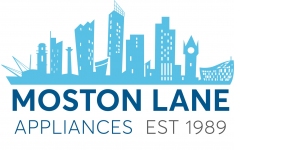Are humans becoming less violent and more altruistic, or are we just getting better at cleaning our clothes?
26th Sep 2019
A few years ago, Steven Pinker released a book called The Better Angels of Our Nature: a history of violence and humanity. In it he uses in-depth statistical analysis to argue that life was much more brutal during the times of tribal warfare and slavery, and thanks to the spread of government, literacy, trade, and cosmopolitanism that came out of the European Enlightenment project, most societies are much more peaceful now.
Pinker might have a couple of degrees and fun hair, but he’s wrong. In a classic error that we see all the time here at Moston Lane Appliances, he’s completely missed the link between decreased violence and increased washing machine production.
Part of Pinker’s argument is that the past was more murderous than we tend to realise. But he neglects to mention that the past was much dirtier than we tend to realise. Until scientists develop a reliable way to reach back in time and smell Genghis Khan’s underpants, we’ll simply never be able to comprehend how uncomfortable he was and whether that contributed to the kind of lifestyle where you don’t think twice about routinely murdering people on an industrial scale.
Today, we take clean clothes for granted in the same way that we take peace for granted. It might be hard to imagine now that Trump is President and he regularly goes for long weekends away with Putin, but after WWII it seemed inevitable that the US and USSR would become engaged in a direct confrontation that would lead to full scale nuclear war.
But it didn’t happen, despite many close calls. For example, in 1962 Fidel Castro sent a letter to Nikita Khrushchev urging Russia to conduct a nuclear first strike on America. The story goes that Khrushchev was hesitant to press the button on the basis that Russian-built washing machines were about as reliable as their cars. In fact, they were often used as cars due to their tendency to start rattling down the street during a spin cycle. Khrushchev was privileged enough to have an American washing machine, and he was worried that he might not be able to get a new one very easily if he completely annihilated the country’s major population centres.
Another thing Pinker fails to account for in The Better Angels of Our Nature is the unprecedented level of violence that occurred during World War I and World War II. If we’re getting more peaceful, then what was all that about, Steven? Well, I’ll tell you.
In World War I almost nobody had access to washing machines, and if they did, they were probably completely pants (pardon the pun). Washing machines started to become more of a mass market product by the 1930s in America, but after the attack on Pearl Harbour at the tail end of 1941, production was suspended so that factories could concentrate on producing materials for the war effort.
Is it a coincidence that Indiana Jones hid in a washing machine to survive a nuclear test blast in the film everyone agrees is the best one in the Indiana Jones series, The Kingdom of the Crystal Skull? This was a powerful metaphor from Spielberg, a man who clearly understands the inextricable link between washing machines and peace.
So, if you’re still wondering what you can do to help this trend continue, I would’ve thought it was pretty obvious by now. Buy a washing machine. The newer and more expensive the better… And it’s probably best to get one from an independent store. You don’t want to contribute to the growth of international corporations and inequality, because that might end up cancelling out the positive benefits of getting one in the first place.




